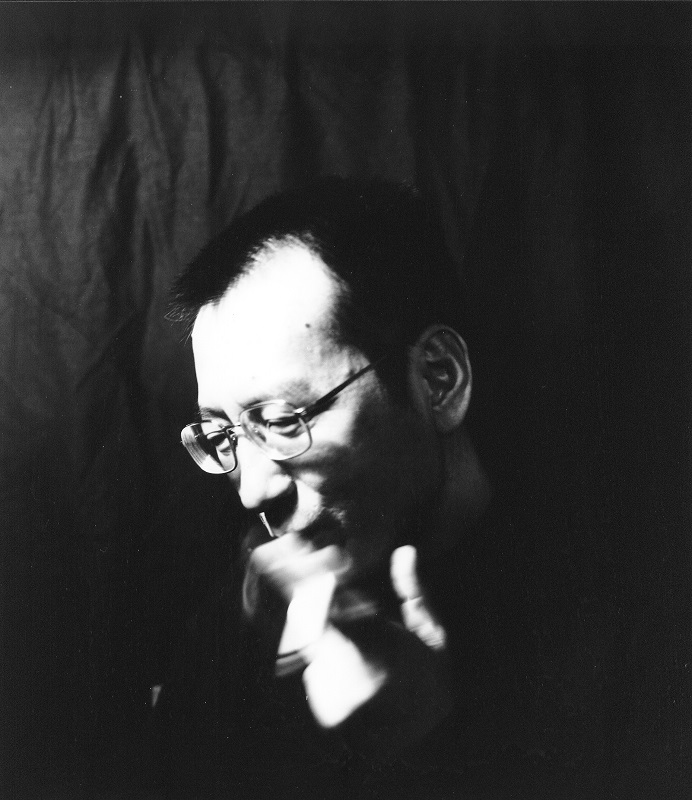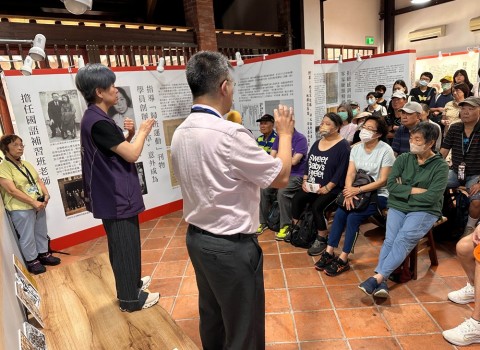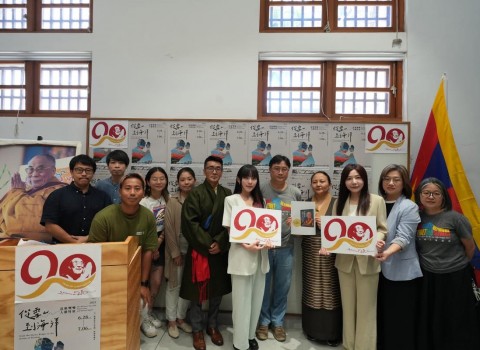文/自由劉曉波工作組
中國民主轉型運動的先驅劉曉波先生,於公元二零一七年七月十三日,因肝癌被延誤治療而逝世於中國瀋陽,享年六十一歲。劉曉波先生在過去三十餘年中,積極致力於中國的民主轉型事務,為中國人的民主、自由與人權事業,宵衣旰食嘔心瀝血,並因此四度繫獄累計長達十五年。他是當代中國自由與人權運動的代言人,是一座標誌著中國人為自由而不懈奮鬥的豐碑。
劉曉波先生一九五五年十二月廿八日生於中國長春。一九七七年入吉林大學中文系,一九八二年入北京師範大學中文系,一九八八年獲文藝學博士並留校任教,係當代中國第一個文藝學博士。一九八九年,劉曉波參與六四民主運動,被捕入獄,一九九一年一月出獄。一九九五年五月,因起草《六四六週年呼籲書》再次被捕,一九九六年二月獲釋。一九九六年十月,因起草《雙十宣言》三度被捕,一九九九年十月獲釋。入獄間隙在北京從事政論寫作。直至二零零八年十二月因《零八憲章》四度繫獄,被判刑十一年,並在獄中榮膺二零一零年諾貝爾和平獎。
劉曉波先生是一九八零年代中國思想啟蒙運動的先行者。博士在讀期間,劉曉波多次發表文章及公眾演講,從文學進入文化、思想領域,進而至哲學領域。《選擇的對話》、《形而上學的迷霧》等著作,不斷闡發其最徹底的自由思想與對普世價值的追求。其博士論文《審美與人的自由》,使得我們對於自由的理解深入到哲學層次,從而徹底否定共產意識形態及其統治。他在一九八零年代提出政治民主化、經濟自由化,文化多元化的主張,遠超八十年代的思想啟蒙的高度。
劉曉波先生是六四民主運動的親歷者、倖存者。一九八九年四二六社論發表次日,北京當局武裝鎮壓已見端倪之時,劉曉波毅然放棄哥倫比亞大學訪學,孤身飛返危城,立即投入廣場運動之中,並撰寫多封呼籲當局啟動民主改革的公開信,發表《六二絕食宣言》,深獲廣場學生信任。在北京當局出動武裝鎮壓民主運動時,劉曉波於六月四日凌晨與軍方談判,帶領數千大學生自槍口下安全撤離,避免了更大的流血衝突。他自稱是“共產主義末日到來之際的倖存者和見證人”。
劉曉波先生是六四精神的守護者。在六四後萬馬齊喑的日子裏,劉曉波窮十數年之功,孜孜不倦協助天安門母親群體整理資料,撰寫或修改聲明,協調安排諸多事務,呼籲國內外媒體關注天安門母親群體。他是天安門母親群體最忠實可靠的同行者。每年六四他都會以自己的方式紀念這個日子,他在物質及精神上幫助了諸多八九一代。
劉曉波先生是中國自由寫作共同體的組織者。劉曉波二零零三年至二零零七年擔任獨立中文筆會第一、二屆會長,並擔任網刊《民主中國》之主編。在他的感召下,許多年輕的政治異議寫作者加入獨立中文筆會,積極關注在中國大陸寫作者的言論及出版自由。在劉曉波的主持之下,筆會活動重點向海內傾斜,創立了立足於中國大陸的“自由寫作共同體”,並在北京成功舉辦兩屆自由寫作頒獎禮,使得筆會成為舉足輕重的民間組織。
劉曉波先生是中國零八憲章運動的領導者。劉曉波是《零八憲章》的主要的修訂者、組織者,並幾乎為此付出生命代價。《零八憲章》是一份關於未來中國政治的藍圖,一份和平轉型的建設性文本,是以民間為主體構建的憲政共和的集體發聲。劉曉波以自己的人格魅力與影響力,徵集到首批三百餘社會知名人士的簽名。憲章運動立即遭到北京當局的殘酷打壓,劉曉波一身承擔,鋃鐺入獄,從而榮膺諾貝爾和平獎。
劉曉波先生是當代中國最重要的社會活動家和獨立知識分子。他在六四後,承擔了中國政治反對運動的組織化工作。他多次介入人權運動與維權運動,關注獄中政治犯、作家及良心犯家屬,縱橫於體制內外,有意識的構建政治反對的人際網絡。他關心下一代青年作家和異議知識分子,為他們創造良好的發展條件。他放棄了自己的學術研究,以積極干預的姿態,為中國弱勢群體做不平之鳴。
劉曉波先生是當今中文世界最重要的政論家和詩人。在過去的二十餘年裏,劉曉波寫了大量關注中國現實問題的政論文章,他以深厚的政治與哲學功底,鞭辟入裏、振聾發聵地分析當代中國問題之根本所在。他同時亦是一個浪漫奔放的詩人,下筆繡辭,揚手文飛,在文學領域馳騁縱橫。美之追求與人之解放,其理一也。劉曉波已出版的著作有十六部之多。
劉曉波先生是中國民主轉型運動的殉道者。他以一己之力,垂三十年而不輟,百折不撓地踐行著自己的理念與信仰。正如他自己所說,自由不只是言說,而是踐行。自由不昌,則無現代文明可言。他對當代中國的民主化、現代化、文明化進程念茲在茲,有生之日皆其奮鬥之年。因此,劉曉波歷年榮膺全球各國相關獎項如海爾曼人權獎等,達十四項之多,其篳路藍縷承先啟後之功,舉世罕有。
劉曉波先生是中國悲劇中的道義巨人。他認為,“為了所有人都有自私的權利,必須有一個人無私地犧牲。為了爭取到一個消極自由,必須有一種積極抗爭的意志。一個殉難者的出現就會徹底改變一個民族的靈魂。”劉曉波在多年的精神打壓和身體監禁之中,愈加溫和、寬容、謙卑,也使得他的感召力量愈加強大,無遠弗屆。
嗚呼!劉曉波先生之逝,為吾人、吾國之大慟。昊天不吊,折我赤子。河山改色,日月韜光。先生之恙,為系獄所生,吾人當為先生紀其事;先生之萎,為中國而死,吾人當為先生續其志。先生身後之中國,當為先生一哭。
嗟大志之所存,故表節而不忘。臨遺籍以慷慨,布茲文以哀傷。
自由劉曉波工作組
—————————————————————————————————
Obituary For Mr. Liu Xiaobo
A pioneer of the Chinese democratic transition movement, Mr. Liu Xiaobo, passed away on 13 July 2017 in Shenyang, China because of delayed treatment of his liver cancer, at age 62. In the past thirty odd years Mr. Liu Xiaobo had been vigorously committed to the democratic transition of China; he had worked diligently [note 1] and painstakingly [note 2] for the cause of democracy, freedom and human rights of the people of China, and had been sent to prison four times with a total of 15 years. He was one of the most important voice of the contemporary freedom and human rights movement in China, and a monument that symbolised the Chinese people’s relentless struggle for freedom.
Mr. Liu Xiaobo was born in Changchun, China on 28 December, 1955. In 1977 he was admitted as an under-graduate student to the Department of Chinese, Jilin University, and in 1982 he was admitted as a graduate student to the Department of Chinese, Beijing Normal University. In 1988 he earned his doctoral degree in Literature and Arts, and stayed on at the University as a teacher. He was the first doctor degree holder in Literature and Arts in contemporary China. In 1989, Mr. Liu Xiaobo participated in the June 4th democratic movement, and as a result was arrested and jailed. He was released in January, 1991. In May, 1995, Mr. Liu was arrested again for drafting “Appeal Letter on the 6th anniversary of June 4th”, and was released in February 1996. In October, 1996, he was thrice arrested for drafting “October 10th Declaration”, and was released in October, 1999. In between imprisonments he spent his time writing political commentary in Beijing. In December 2008 he was arrested for the fourth time for “Charter 08”, and sentenced to 11 years imprisonment. He was awarded the Nobel Peace Prize in 2010 while in jail.
Mr. Liu Xiaobo was a forerunner in the Chinese Enlightenment Movement in the 1980s. During his studies, Mr. Liu had published numerous articles and made various public speeches, starting from the field of literature, moving towards culture and thoughts, and onwards to philosophy. His publications such as “Dialogue on Choice” and “Metaphysical Fog”, had elucidated the true meaning of freedom of thought and the pursuit of universal values. His doctoral thesis “Aesthetics and the Freedom of Human Beings” deepened our understanding of freedom on a philosophical level, and was a complete rejection of the communist ideology and regime. The ideas he proposed in the 1980s – democratization of politics, liberalization of economy, and diversification of culture – were way more advanced than the level of common understanding reached during the Enlightenment in the 80s.
Mr. Liu Xiaobo was a witness and a survivor of the June 4th Democratic Movement. On the day following the publication of the April 26th Editorial [note 3] in 1989, and when signs of the subsequent military crackdown were emerging, Mr. Liu Xiaobo resolutely decided to give up his position as a visiting scholar at the Colombia University and headed back to the dangerous city of Beijing by himself. He immediately threw himself into the movement on Tiananmen Square; he wrote various public letters calling for the authorities to initiate democratic reform and issued the “June 2nd Hunger Strike Declaration”, gaining the trust of the students on Tiananmen Square. When the Beijing authorities sent out the military to suppress the democratic movement, Mr. Liu Xiaobo negotiated with the military on the early morning of June 4th, securing the safe passage of thousands of students right in front of the guns of the military, avoiding further bloodshed. He called himself the survivor and witness of the doomsday of communism.
Mr. Liu Xiaobo was a guardian of the June 4th spirit. In the days following the June 4th Massacre, when everyone kept their mouths shut, Mr. Liu Xiaobo spent over a decade in the tireless collection of information for the Tianamen Mothers. He helped the Tiananmen Mothers in the drafting and editing of statements, in coordination, and in calling for both local and overseas media to pay attention to the plight of the Tiananmen Mothers. He was the most steadfast and dependable companion of the Tiananmen Mothers. Every year he would mark the anniversary of June 4th in his own way. He had also helped many who still suffered from having participated in the 1989 Democratic Movement, both materially and spiritually.
Mr. Liu Xiaobo was the facilitator of the community of free writers in China. From 2003 to 2007 Mr. Liu Xiaobo was the First and Second President of the Independent Chinese Pen, and the chief editor of the online magazine “Democratic China”. Inspired by Mr. Liu Xiaobo, many young dissident writers joined the Independent Chinese Pen, and actively engaged in the freedom of speech and publication of writers inside China. Under Mr. Liu Xiaobo’s leadership, the Independent Chinese Pen leaned its focus inside China, forming a community of free writers based in Mainland China. The Independent Chinese Pen also successfully held prize giving ceremony for the Free Writing Prize in Beijing for two times, making it a significant civil organization.
Mr. Liu Xiaobo was the leader of the Charter 08 Movement of China. Mr. Liu Xiaobo was the main reviser and organiser behind the Charter 08, and he almost paid for it with his life. Charter 08 is a political blueprint for future China, a constructive document on peaceful transition, and a collective stance of the civil society for a constitutional republic. Using his charisma and influence, Mr. Liu Xiaobo collected the first batch of more than 300 signatories of renowned individuals in the society. The Charter Movement was immediately and cruelly suppressed by the Communist regime, Mr. Liu Xiaobo shouldered the responsibility for everyone, was jailed as a result, and was subsequently awarded the Nobel Peace Prize in 2010.
Mr. Liu Xiaobo was the most important social activist and independent intellectual in contemporary China. After the June 4th Massacre, he shouldered the task of organising an opposition movement in China. He was involved in human rights and rights defending movements; he was concerned about political prisoners, writers and family members of prisoners of conscience; he worked both within and outside the establishment and tried consciously to build a network of political opposition. He cared much about younger generation of writers and dissident intellectuals, and created conducive conditions for their development. He had given up his own academic research to actively intervene and voice out for the disadvantaged groups inside China.
Mr. Liu Xiaobo was the most important political commentators in the contemporary Chinese speaking world. In the past twenty odd years, Mr. Liu Xiaobo had written many political commentaries on practical problems of China. Using his profound knowledge in politics and philosophy, he had written thorough, penetrating and enlightening analysis of the root of the problems facing contemporary China. He was at the same time a romantic poet, who wrote with elegance and ease. The pursuit of beauty and the pursuit of human freedom, have at their roots the same logic. To date Mr. Liu Xiaobo had already published 16 books.
Mr. Liu Xiaobo was a martyr of the democratic transition movement in China. Persisting for over thirty years, he had lived out his values and beliefs despite the many obstacles and setback he had faced. In his own words, freedom is not about words but about action. With no freedom, there is no modern civilisation. The democratisation, modernisation and civilisation of contemporary China is the one thing that was always on his mind, and the cause that he had always been fighting for during every day of his life. As a result Mr. Liu Xiaobo had been awarded a total of 14 honours and prizes from around the world throughout the years, including the Hellman Human Rights Award. His contributions in paving the path as a trailblazer and inspiring the younger generation to carry on was second to none in the whole world.
Mr. Liu Xiaobo was a moral giant in the tragedy of China. He had once stated, “In order that everyone can enjoy the right to be selfish, there must be one who sacrifices himself selflessly. In order to achieve negative liberty, one must have the determination to fight positively. The birth of a martyr would completely change the soul of a people.” Throughout the long years of mental suppression and physical imprisonment, Mr. Liu Xiaobo had only become all the more gentle, tolerant and humble, and this in turn made his ability to inspire others all the more powerful and far-reaching.
Alas! The passing of Mr. Liu Xiaobo causes great grief to our people and our country. The Gods had withheld their blessings and taken away the one of pureness and sincerity. Because of his death, rivers and mountains have changed their colour, and the sun and moon have lost their light. Mr. Liu’s disease was a disease caused by imprisonment, and we shall record his deeds for him; Mr. Liu’s death was a death for China, and we shall carry on his fight. A China left behind by Mr. Liu is one which shall cry for him.
Alas what great ambition there was, and we must mark it for remembrance. Reading the passionate words he had left behind, we issue this obituary to show our grief.
Freedom for Liu Xiaobo Action Group
—
Note 1. The idiom 宵衣旰食 literally means that one woke up before day break to work, and only eat after meal time is passed.
Note 2. The idiom 嘔心瀝血 literally means working till one spits out one’s heart and drips out blood.
Note3. The April 26th Editorial is a strongly worded editorial condemning the student movement then brewing in Beijing.
相關文章:
2017-07-13 沒有人知道他們國家的第一個諾貝爾獎得主可能離開人世
2017-06-30 300人燭光集會 香港社團要求「釋放劉曉波,解除劉霞軟禁」
—
2017-07-13 劉曉波先生訃告 Obituary For Mr. Liu Xiaobo
2017-07-13 【連署】劉曉波先生追思會成立公告 Announcing the Establishment of “Mr. Liu Xiaobo Memorial Alliance”




